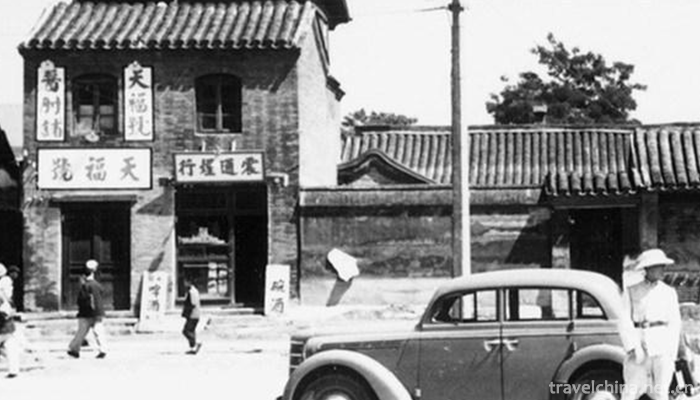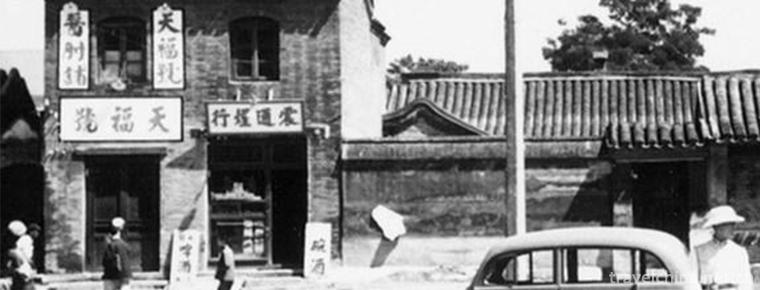Manufacturing Techniques of Tianfu Sauce Elbow
Manufacturing Techniques of Tianfu Sauce Elbow
Declaration area or unit: Beijing Tianfu Food Co., Ltd.
Tianfu Sauce Meat Shop was founded in 1738, the third year of Qianlong in Qing Dynasty, when Shandong was in a severe drought and there was no grain harvest. Liu Fengxiang, a man from Yexian County, Shandong Province, led his grandson Liu Daiming to Beijing to make a living. He opened a Sauce Meat Shop in the northeastern corner of Xidan Archway, named Tianfu, which implied the meaning of heaven's blessing. The sauce elbow made by Tianfu is crisp and delicious with excellent quality, which attracts the patronage from top officials and nobles to bottom civilians. Empress Dowager Cixi also greatly appreciated it after tasting, and gave "Tianfu waist plate", which stipulated that Tianfu waist plate should be used to send sauce elbows into the palace quantitatively every day. Since then, "Tianfu sauce elbow" has become a tribute, and its reputation has been boosted. In 1993, "Tianfu" was named "the old Chinese brand". So far, Tianfu has been passed down for eight generations. During the historical changes of more than 270 years, its products such as soy sauce elbow have always maintained superb quality.
Tianfu sauce elbow production technology is formed by repeated research of Liu's ancestors and grandchildren in their business. Its sauce preparation method is unique and unique. Tianfu sauce elbow has fine material selection, fat but not greasy, thin but not wood, non-return skin, rich fragrance and mellow. Since the 21st century, due to the overburdened old enterprises, shortage of funds and talents, narrow production sites, aging of skilled workers, outflow of skilled personnel and other reasons, the inheritance of Tianfu sauce elbow production technology has become increasingly difficult, followed by few people. To change this situation, effective protection measures must be formulated as soon as possible.


-
2.wunv mountain city
Wunu Mountain City is a national key cultural relic protection unit. It was built by Zhu Meng, the ancestor of Koguryo. The three gates of the city are narrow at the bottom of the wall
Time 2018-12-22 -
3.Yangda Kuduktur Beacon Platform Site
Beacon also known as beacon platform, beacon platform, Yandun, pyrotechnic platform. If there were enemies, smoke in the daytime and fire in the evening were the quickest and most effective ways to tr
Time 2019-03-02 -
4.Eight treasures bean curd
Babao bean skin is a delicacy. Main raw materials: bean curd 6 white sesame 25 grams pig meat 120 grams of letinous edodes.
Time 2019-03-25 -
5.Jingzhou Huagu Opera
Jingzhou Huagu Opera, a local traditional drama in Hubei Province, is one of the national intangible cultural heritage.
Time 2019-05-08 -
6.Dairy Products Production Techniques
Mongolian phonetic translation. Mongolian drinks. Also known as "white food", that is, dairy products. Milk, mare's milk, goat's milk, camel's milk, cream of milk skin, cheese, dried milk, s
Time 2019-06-07 -
7.Qijia Yanxi
"Qijia Yanxi" is a long narrative poem in Tu folk literature. It records the eleventh generation of Qi Tusi Chief Qi Yanxi in the history of Tu people, despite his old age and physical decli
Time 2019-06-10 -
8.Making Skills of Sheng Xifu Leather Cap
Shengxifu leather cap production skills need to go through the whole process from matching, picking, blowing, brushing, flat leather, shaving, hand needle sewing to machine sewing, and finally complet
Time 2019-06-14 -
9.Tiger dance shua laohu
Tiger dance, also known as "playing tiger" ("playing" Jiaozuo dialect refers to "playing" and "performing"), is said to have appeared in the Western Han Dynasty
Time 2019-06-15 -
10.Song Brocade Weaving Skills
Song brocade weaving technology, traditional handicraft in Suzhou City, Jiangsu Province, is one of the national intangible cultural heritage.
Time 2019-06-16 -
11.Turkish Wheel Autumn
There is a beautiful and magical legend about the origin of Tu's wheel autumn. Legend has it that in order to find a way out of life, the ancestors of the Tu nationality ploughed their fields successi
Time 2019-06-23 -
12.Wuyin Opera
Wuyin opera has a history of nearly 300 years. Its singing style is graceful and charming. It is known as "Northern Yue Opera". Its occurrence, development and finalization have gone through
Time 2019-06-29